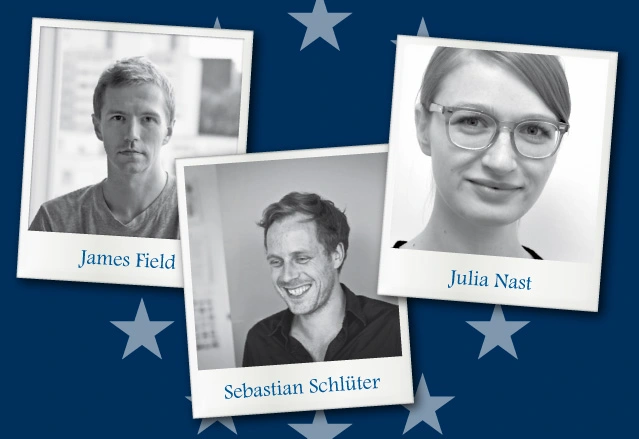Doctor Europe
Better job opportunities for joint PhD candidates
Since autumn 2012, doctoral candidates in geography (comparative town planning) can take partin a joint PhD programme between the Humboldt University of Berlin and Kings College London. They will research a topic for three years,spending one year at the partner university. This means they will become familiar with two different academic cultures and have the opportunity to make contacts with other academics. The student will also be given two certificates: one German certificate and one English certificate. This should also increase job opportunities.
A similar programme has also started recently for doctoral candidates in mathematical physics at Humboldt University. Through GATIS (Gauge Theory as an Integrable System), young academics at can research gauge theory at European partner universities or with industrial partners. However, unlike with geography, these students are not awarded a joint PhD.
Ellen Köhrer spoke to the joint PhD students about their experiences:
"Berlin is an urban laboratory"
James Field, 33, from Coventry, UK
Start of joint PhD: September 2011 in London
Berlin: June 2013 until September 2014 (expected)
I was the first participant in the joint PhD programme. At the start I couldn't speak German very well. I'm writing my doctoral thesis on the public spaces of Canary Wharf in London and Potsdamer Platz in Berlin. In order to do this, I have to survey passers-by. I found that difficult at the start in Berlin, but I now speak reasonably good German. Since I want to pursue a career in academia in the future, I think I will have better chances with my job hunt as a result of the joint PhD. I already know the British university system very well as I worked in administration there for a long time before starting to study geography. I can now see what is different in Germany and what cultural differences there are. As a PhD student I get a lot of feedback frommy two supervisors from the UK and Germany. Berlin is an urban laboratory – the history of the city is very exciting and I am very interested in how German academics experienced reunification. Berlin is not as expensive as London, so I can do a lot more here. I like going to museums and galleries, or going on walks from my apartment in Tiergarten to Potsdamer Platz or through the government quarter.
"Networks for the future"
Sebastian Schlüter, 32, from Berlin
Start of joint PhD: October 2012 in Berlin
London: October 2013 until summer 2014 (expected)
I'm writing my doctoral thesis about Christian communities in London and Berlin and the role they play in their neighbourhood. The joint PhD means that I get to know two different universities in two countries. I have a supervisor in each country, and since I'm writing my doctoral thesis in English I am learning the language to a higher level. In Adlershof, I have my own office where I can work in peace – in London all of us doctoral candidates work together in one large office. In our free time we like to go to the theatre or to the pub. It brings people together. The British are very open towards other cultures and they are good networkers. It is easy to make contacts and exchange views, whether at uni or at conferences. Here in London, there is an internationally renowned research group for my doctoral topic, and I have got to know them. These contacts may be able to help me when I am searching for a job in the future. At the moment, there are more jobs for academics in England than in Germany.
"Doctoral candidates from around the world"
Julia Nast, 29, from Berlin
Start of joint PhD in social sciences: October 2011 in Berlin
London: September to December 2013
In Germany, we as doctoral candidates are very free and organise a lot ourselves. In contrast, my professor in London said to me "dissertations here normally have eight chapters". A clear statement. Since my professor in London was supervising relatively few doctoral candidates, he had a lot of time for me. The staff on both sides are closely interlinked and know exactly who is responsible for which issues.We doctoral candidates come from Germany, France, the UK, Sweden, China and Ethiopia. We are currently working together to organise a session for a conference of the Royal Geographical Society in London, which we are also moderating. Through this, we are gaining valuable experience for the future. In our free time we used to go to the pub with our professor or met at one of the food markets to eat. I think life in London is exciting, but because it's so expensive most students don't live in the centre and have a long commute to uni. When I have finished my PhD, I can definitely imagine going to London again, but I still don't know what job I would do then.
